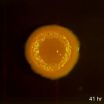(Press-News.org) ROCHESTER, Minn. — Mayo Clinic researchers have shed light on a new mechanism by which prostate cancer develops in men. Central to development of nearly all prostate cancer cases are malfunctions in the androgen receptor — the cellular component that binds to male hormones. The research team has shown that SPOP, a protein that is most frequently mutated in human prostate cancers, is a key regulator of androgen receptor activity that prevents uncontrolled growth of cells in the prostate and thus helps prevent cancer. The findings appear in the journal Cell Reports.
"By uncovering this new and important pathway of androgen receptor destruction, we may one day be able to develop more effective treatments for a substantial proportion of prostate cancer patients who have developed resistance to standard antiandrogen therapy," says Haojie Huang, Ph.D., Mayo Clinic biochemist and senior author of the paper.
SPOP mutations have been detected in approximately 15 percent of prostate cancer cases. In addition, it has been shown that in about 35 percent of prostate cancers, the SPOP protein is expressed at abnormally low levels. Despite its prevalence in prostate cancer, it was not known whether or how SPOP defects contributed to tumor development. What the research team discovered is that SPOP is an enzyme that selectively destroys androgen receptor protein. Failure to do so due to alterations in SPOP results in overabundance of androgen receptor, a master regulator of prostate cancer cell growth.
The Mayo Clinic research team made four major discoveries:
The antiandrogen receptor is a bona fide degradation substrate of SPOP.
Androgen receptor splicing variants are resistant to SPOP-mediated degradation.
Prostate cancer-associated SPOP mutants cannot bind to and promote androgen receptor degradation.
Androgens antagonize, but antiandrogens promote SPOP-mediated degradation of androgen receptor.
Prostate Cancer Background
Prostate cancer is the second most common cause of cancer in men and the second leading cause of cancer death in American men, with over 913,000 new cases and over 261,000 deaths worldwide each year. Because of the widespread disability and death that prostate cancer causes, finding new strategies to develop better treatments is an important public health goal.
Androgen receptor is essential for normal prostate cell growth and survival. It is also important for initiation and progression of prostate cancer. Androgen deprivation therapy, including chemical castration and/or antiandrogen therapy, is the mainstay for treating advanced/disseminated prostate cancer. However, tumors almost always reoccur two to three years after initial response and relapse into a disease called castration-resistant prostate cancer. Development of this therapy-resistant symptom is related to a persistent activation of androgen receptor.
INFORMATION:
Co-authors of the article include Jian An, Ph.D.; Chenji Wang, Ph.D.; Yibin Deng, Ph.D.; and Long Yu, M.D., Ph.D., all of Mayo Clinic. Their research was supported by the National Institutes of Health and the Mayo Clinic Cancer Center. Dr. Huang is a member of the Mayo Clinic Cancer Center and the departments of Biochemistry and Molecular Biology, and Urology.
About Mayo Clinic
Recognizing 150 years of serving humanity in 2014, Mayo Clinic is a nonprofit worldwide leader in medical care, research and education for people from all walks of life. For more information, visit 150years.mayoclinic.org, http://www.mayoclinic.org and newsnetwork.mayoclinic.org.
MEDIA CONTACT:
Robert Nellis, Mayo Clinic Public Affairs, 507-284-5005, newsbureau@mayo.edu
Mayo Clinic identifies a key cellular pathway in prostate cancer
2014-02-11
ELSE PRESS RELEASES FROM THIS DATE:
Flowing water on Mars appears likely but hard to prove
2014-02-11
Martian experts have known since 2011 that mysterious, possibly water-related streaks appear and disappear on the planet's surface. Georgia Institute of Technology Ph.D. candidate Lujendra Ojha discovered them while an undergraduate at the University of Arizona. These features were given the descriptive name of recurring slope lineae (RSL) because of their shape, annual reappearance and occurrence generally on steep slopes such as crater walls. Ojha has been taking a closer look at this phenomenon, searching for minerals that RSL might leave in their wake, to try to understand ...
With their amazing necks, ants don't need 'high hopes' to do heavy lifting
2014-02-11
COLUMBUS, Ohio—High hopes may help move a rubber tree plant (as the old song goes), but the real secret to the ant's legendary strength may lie in its tiny neck joint.
In the Journal of Biomechanics, researchers report that the neck joint of a common American field ant can withstand pressures up to 5,000 times the ant's weight.
"Ants are impressive mechanical systems—astounding, really," said Carlos Castro, assistant professor of mechanical and aerospace engineering at The Ohio State University. "Before we started, we made a somewhat conservative estimate that they ...
Chips that listen to bacteria
2014-02-11
VIDEO:
The development of colony biofilms by Pseudomonas aeruginosa is affected by redox-active compounds called phenazines. A phenazine-null mutant forms a hyperwrinkled colony with prominent spokes, while wild-type colonies are more...
Click here for more information.
New York, NY—February 10, 2014—In a study published today in Nature Communications, a research team led by Ken Shepard, professor of electrical engineering and biomedical engineering at Columbia Engineering, ...
Manga comics may help promote fruit consumption among youth
2014-02-11
AUDIO:
May May Leung, Ph.D., R.D., discusses how a recent pilot study in Brooklyn, N.Y., with minority students found that exposure to manga comics (Japanese comic art) promoting fruit intake significantly...
Click here for more information.
PHILADELPHIA, PA, February 10, 2014 – A recent pilot study in Brooklyn, New York, with minority students found that exposure to Manga comics (Japanese comic art) promoting fruit intake significantly improved healthy snack selection. As ...
Political values influence people's response to health disparities messages
2014-02-11
PHILADELPHIA (February 10, 2014) – Policymakers and advocates discussing health disparities in the United States would be wise to consider the political affiliation of their audience, suggests a new study published in the Journal of Health Communication: International Perspectives (2014).
"Understanding Public Resistance to Messages about Health Disparities" was written by Sarah E. Gollust, University of Minnesota School of Public Health; and Joseph N. Cappella, Annenberg School for Communication, University of Pennsylvania. The study examines how political ...
TGen study uncovers possible genetic markers in breast cancer that spreads to the brain
2014-02-11
PHOENIX, Ariz. — Feb. 10, 2014 — The Translational Genomics Research Institute (TGen) has uncovered possible genetic origins of breast cancer that spreads to the brain, according to a first-of-its-kind study published in the scientific journal PLOS ONE.
The compendium of genetic targets uncovered by TGen now can be used to identify potential new methods of diagnosis and new drug therapies for the estimated 45,000 patients in the U.S. each year whose cancer spreads from the breast to the brain.
The 3-year study is significant since these patients currently have few treatments ...
New advance in 3-D printing and tissue engineering technology
2014-02-11
Boston, MA – Researchers at Brigham and Women's Hospital (BWH) and Carnegie Mellon University have introduced a unique micro-robotic technique to assemble the components of complex materials, the foundation of tissue engineering and 3D printing.
Described in the Jan. 28, 2014, issue of Nature Communications, the research was conducted by Savas Tasoglu, PhD, MS, research fellow in the BWH Division of Renal Medicine, and Utkan Demirci, PhD, MS, associate professor of Medicine in the Division of Biomedical Engineering, part of the BWH Department of Medicine, in collaboration ...
Breast cancer drug fights fungal disease
2014-02-11
Tamoxifen, a drug currently used to treat breast cancer, also kills a fungus that causes a deadly brain infection in immunocompromised patients. The findings, which could lead to new treatments for a disease that kills more HIV/AIDS patients than tuberculosis, appear in mBio®, the online open-access journal of the American Society for Microbiology (ASM.)
"This work sets the stage for additional animal studies to see if tamoxifen can be used as a drug in people and will allow us to design new drugs related to tamoxifen that are better antifungals," says Damian Krysan ...
Study shows drop in crime rates is less where Wal-Mart builds
2014-02-10
Communities across the United States experienced an unprecedented decline in crime in the 1990s. But for counties where Wal-Mart built stores, the decline wasn't nearly as dramatic.
"The crime decline was stunted in counties where Wal-Mart expanded in the 1990s," says Scott Wolfe, assistant professor of criminology and criminal justice at the University of South Carolina and lead author of a new study. "If the corporation built a new store, there were 17 additional property crimes and 2 additional violent crimes for every 10,000 persons in a county."
The study, titled ...
Newly found tactics in offense-defense struggle with hepatitis C virus
2014-02-10
The hepatitis C virus (HCV) has a previously unrecognized tactic to outwit antiviral responses and sustain a long-term infection. It also turns out that some people are genetically equipped with a strong countermeasure to the virus' attempt to weaken the attack on it.
The details of these findings suggest potential targets for treating HCV, according to a research team led by Dr. Ram Savan, assistant professor of immunology at the University of Washington. The study was published in Nature Immunology.
HCV infects more than 150 million of the world's people. The ...




